Announcing the 2023 Donner Prize Shortlist
The Legal Singularity: How Artificial Intelligence Can Make Law Radically Better (University of Toronto Press)
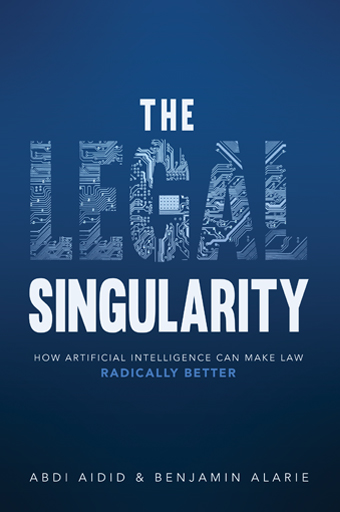
The Legal Singularity addresses the transformative potential of artificial intelligence in the legal sector. It considers the evolving role of technology in governance and the administration of justice, offering insights into how AI can enhance efficiency, fairness, and accessibility in legal processes. It also explores how the integration of AI in law could revolutionize policy development, regulatory compliance, and public service delivery. An important and timely book that will generate a meaningful conversation about AI and its role in the pursuit of justice.
Abdi Aidid researches and teaches in the areas of civil procedure, torts, and law and technology. He received his B.A. from the University of Toronto, his J.D. from Yale Law School, and his LL.M from the University of Toronto Faculty of Law, where he is currently assistant professor and a member of the Ethics of AI Lab there.
Benjamin Alarie, is a graduate of the University of Toronto and Yale Law School, and began his career as a law clerk for Madame Justice Louise Arbour. He now holds the Osler Chair in Business Law at the University of Toronto Faculty of Law and is an affiliated faculty member at the Vector Institute for Artificial Intelligence.
Pandemic Panic: How Canadian Government Responses to COVID-19 Changed Civil Liberties Forever (Optimum Publishing International)
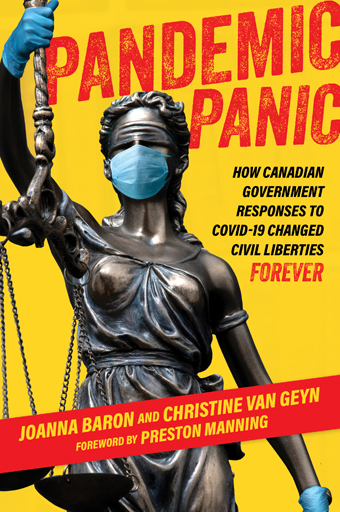
This book dives into the significant and contentious issue of how government policies during the COVID19 pandemic impacted civil liberties. It will be very relevant to policymakers in that it provides a critical analysis of past actions and their implications, offering lessons that can inform future crisis response and policy development. The authors have tackled a difficult and potentially controversial subject with serious analysis and recommendations, challenging readers to consider the delicate balance between public health and individual freedoms—a dilemma that is timeless and universal.
Joanna Baron is a graduate of McGill University Faculty of Law, and is currently Executive Director of The Canadian Constitution Foundation. She was a founding director of the Runnymede Society, a non-partisan national association of law students. She clerked at the Ontario Court of Appeal, and practiced criminal law with Edward Greenspan.
Christine Van Geyn is Chief Litigation Director at The Canadian Constitution Foundation. A graduate of University of Toronto, she earned her law degree at Osgoode Hall, and also studied at New York University School of Law. She is a noted journalist and broadcaster.
Who Owns Outer Space? International Law, Astrophysics, and the Sustainable Development of Space (Cambridge University Press)
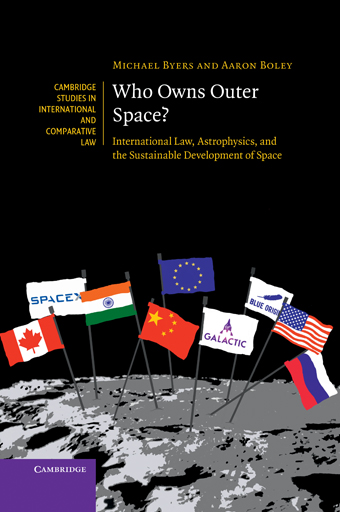
Space exploration, and exploitation, is evolving at a rapid pace. Who Owns Outer Space? draws attention to the many risks that are linked to the deployment of very large numbers of new satellites, and the growing rivalries among leading spacefaring nations and corporations. The book includes an examination of existing international treaties and state practices that show both the effectiveness of the rules and practices already in place and, importantly, their limitations, as well as suggesting how international law and other cooperative arrangements could be strengthened to avoid catastrophic incidents. The authors provide a roadmap into uncertain territory for Canadian policymakers.
Michael Byers holds the Canada Research Chair in Global Politics and International Law at the University of British Columbia and co-directs the Outer Space Institute. His previous book, International Law and the Arctic (Cambridge University Press) won the 2013 Donner Prize.
Aaron Boley holds the Canada Research Chair in Planetary Astronomy at the University of British Columbia. He co-directs the Outer Space Institute, a transdisciplinary organization that addresses challenges associated with NewSpace, conducting research into planetary dynamics, and space sustainability.
The Privacy Fallacy: Harm and Power in the Information Economy (Cambridge University Press)
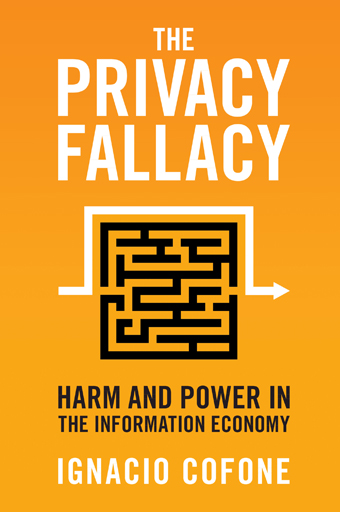
Who can access our information and what they are doing with it has become an issue of increasing concern to individuals, corporations and governments worldwide. In The Privacy Fallacy, Cofone describes why our current laws fail to protect us against corporate digital harm. His proposed reforms put the onus on corporations to use data responsibly and be held accountable for any violations that result in loss of privacy and attendant harms. Through well-defined issues, sound analysis and evidence-based arguments, Cofone navigates the complexities of privacy, harm, and power dynamics in the information economy.
Ignacio Cofone is an Associate Professor and Canada Research Chair in Artificial Intelligence Law & Data Governance at McGill University Faculty of Law, where he teaches Privacy Law, Artificial Intelligence Regulation and Advanced Obligations. He is currently researching liability for privacy harm and A.I. discrimination.
Wrongfully Convicted: Guilty Pleas, Imagined Crimes, and What Canada Must Do to Safeguard Justice (Simon & Schuster Canada)
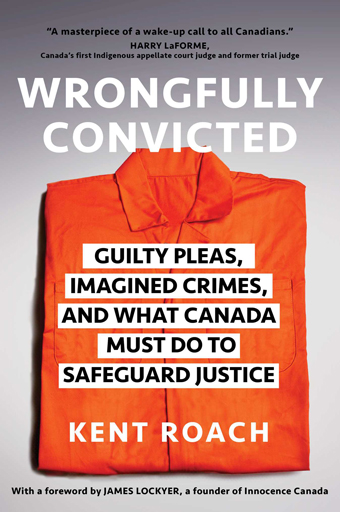
In this deft presentation of the deficiencies in the Canadian justice system, Roach chronicles numerous instances of wrongful conviction, as well as outlining remedies which, if implemented, could prevent, detect and remedy such cases. This is a systemic problem. Roach notes that between 1989 and 2008 Canada conducted no less than seven multi-year and multi-million-dollar inquiries into specific wrongful convictions. He reminds us that the burden of wrongful conviction falls disproportionally on the disadvantaged. Clear, thorough, compelling, evocative, and jargon-free, Wrongfully Convicted stands out as a valuable resource for policymakers, lawyers, and advocates for justice.
Kent Roach is Professor at University of Toronto Faculty of Law. A prolific scholar, his books include Canadian Justice, Indigenous Injustice which was shortlisted for the 2019 Shaughnessy Cohen Prize; and Canadian Policing: Why and How it Must Change, which was shortlisted for the 2022 Donner Prize.
